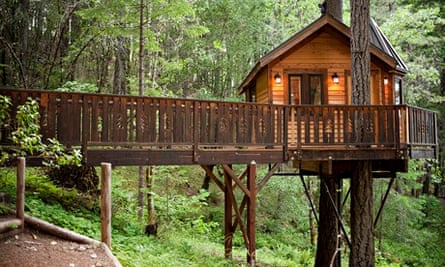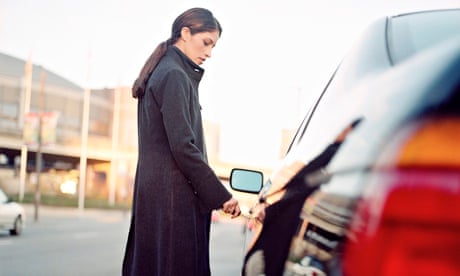Early this month, Verizon, one of America's largest mobile operators, quietly unveiled a new service called Auto Share. Slated to launch by the end of the year, Auto Share makes it trivially easy to book and unlock a rented car with a smartphone: just scan and validate a QR code on the windshield.
Potential implications are, indeed, far-reaching: now any aspiring startup can rely on Verizon's infrastructure of ubiquitous connectivity and geolocational tracking to match supply and demand, with Verizon itself providing lucrative verification and locking services. Verizon hopes to eventually extend this model far beyond cars, making it possible to swap any other items fitted with an electronic lock: power drills, laptops, apartments. Verizon – hardly a Silicon Valley pioneer – thus joins many other champions of the "sharing economy" in insisting that "people today are embracing a sharing society – the one that allows them to get what they want on demand". Gone are the burdens of ownership!
For all the incessant talk about disruption and disintermediation, services like Auto Share reveal that digitisation is propelled by a new set of powerful intermediaries that will be much harder to disrupt. Take Facebook: it provides many of the services grouped under the sharing economy with the kind of reliable identity infrastructure that allows us to verify that we are who we say we are when, for example, we book apartments via Airbnb. Facebook provides a free service to Airbnb – call it "identity on demand" – and Verizon wants to dominate another such service: "access on demand".
The smartphone, with its clever sensors and always-on, reliable connectivity, joins all these layers together. A company like Uber, for example, would be unthinkable without the smartphone and its real-time sensors, always ready to pinpoint the car's location on the virtual map. The appearance of clever apps such as Auto Share suggests that, instead of retrofitting every object with a sensor as proponents of the Internet of Things advocate, one can latch a QR code on them and let one centralised device – the smartphone – do all the sensing. It's not clear which of the two visions – the Internet of Smart Things or the Internet of Dumb Things Connected via Smart Phones – would dominate. Given Apple's recent foray into mobile payments, it seems wise to bet on the latter.
The very name Auto Share has an intriguing double meaning: it refers not only to the ease with which we can "share" automobiles but also to the fact that much of that sharing can be automated. Today, our most beloved belongings can re-enter market circulation without much effort on our part. We no longer need to visit the proverbial bazaar: the market will find us in the comfort of our homes, making us an offer we cannot refuse. The rapid ascent of the sharing economy can thus be explained by capitalism's newly found technological capability to convert every commodity that has been bought and removed from the market – temporarily becoming "dead capital" of sorts – into a rentable object that never leaves the market at all.
At its worst, the sharing economy turns us into perpetual hustlers, cementing our connection to the global market. This sharing imperative dictates that everything that we own, from tangible assets to intangible thoughts, be categorised and assigned some kind of a unique identifier like the QR code. When somebody somewhere – it could be our neighbour or an advertising company across the ocean – expresses an interest in "borrowing" an item that matches the description of what we own, our phone would notify us of their offer, pitting us against all the other "micro-entrepreneurs" with similar ownership profiles. Once we accept, the rest is logistics: a drone or a self-driving car would stop by to fetch the item – the transport of emotions and thoughts is even easier – and the payment would safely arrive on our smartphones.
To some, this is a very appealing proposition: not only does it help to deal with overconsumption – we can all get by with less if we only find a way to use existing resources more efficiently! – but it also gives those on the receiving end of the "sharing economy" an exhilarating sense of permanent youth. We can finally break, once and for all, with the usual traps of the boring middle-class existence: no need to settle down, own a house, buy a car, fill the basement with clunky household appliances. It's all there, in the cloud, to be rented and delivered by drones.
That so many people find this attractive is hardly a surprise: the cheerleaders of the sharing economy have amazing storytelling skills. Their talent for spin rivals that of Steve Jobs. For example, the chief sharing ideologue of Airbnb is Douglas Atkin, also the author of The Culting of Brands, a 2004 bestselling book that coaches executives on how to strengthen their brands by learning from religious cults. The sharing lobby also has its own advocacy group. Called Peers.org, it presents itself as a bottom-up grassroots entity – never mind that it was launched with the corporate blessing of Airbnb, Lyft (a site that helps users ride along on journeys), and TaskRabbit (which finds helpers for jobs and errands). Silicon Valley never gets around to disrupting the lobbyists.
But the broader problem with these optimistic, utopian tales is that they rationalise the pathologies of the current political and economic system, presenting them as our conscious lifestyle choices. It's nice to be in a position to choose between renting and owning but this is a choice that many people simply do not get to make, settling on "renting" as a default option.

Given vast youth unemployment, stagnating incomes, and skyrocketing property prices, today's sharing economy functions as something of a magic wand. Those who already own something can survive by monetising their discomfort: for example, they can earn cash by occasionally renting out their apartments and staying with relatives instead. Those who own nothing, on the other hand, also get to occasionally enjoy a glimpse of the good life – built entirely on goods they do not own.
The supposed environmental benefits of the sharing economy are likewise laughable: while we are asked to share our cars with neighbours – it's cheaper and greener! – the rich keep enjoying their yachts, limos and private jets, all while the real polluters – oil companies and other industrial giants – get away with even worse offences.
There's no denying that the sharing economy can – and probably does – make the consequences of the current financial crisis more bearable. However, in tackling the consequences, it does nothing to address the causes. It's true that, thanks to advances in the information technology, some of us can finally get by with less – chiefly, by relying on more effective distribution of existing resources. But there's nothing to celebrate here: it's like handing everybody earplugs to deal with intolerable street noise instead of doing something about the noise itself.
Sensors, smartphones, apps: these are our generation's earplugs. That we no longer notice how thoroughly they banish anything that even smacks of politics from our lives is itself a telling sign: deafness – to injustice and inequality but, above all, to our own dire state of affairs – is the price we'll pay for this dose of immediate comfort.
